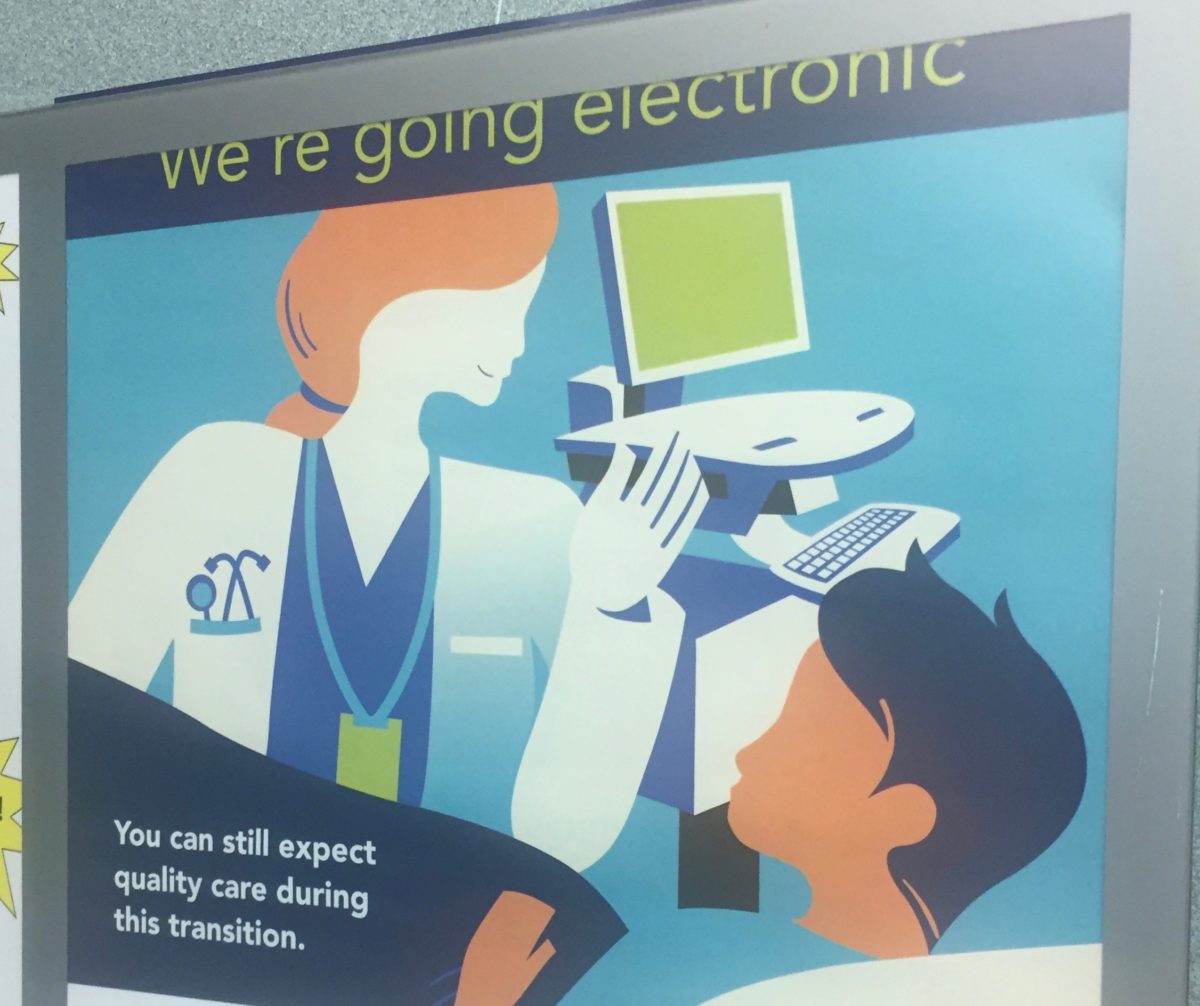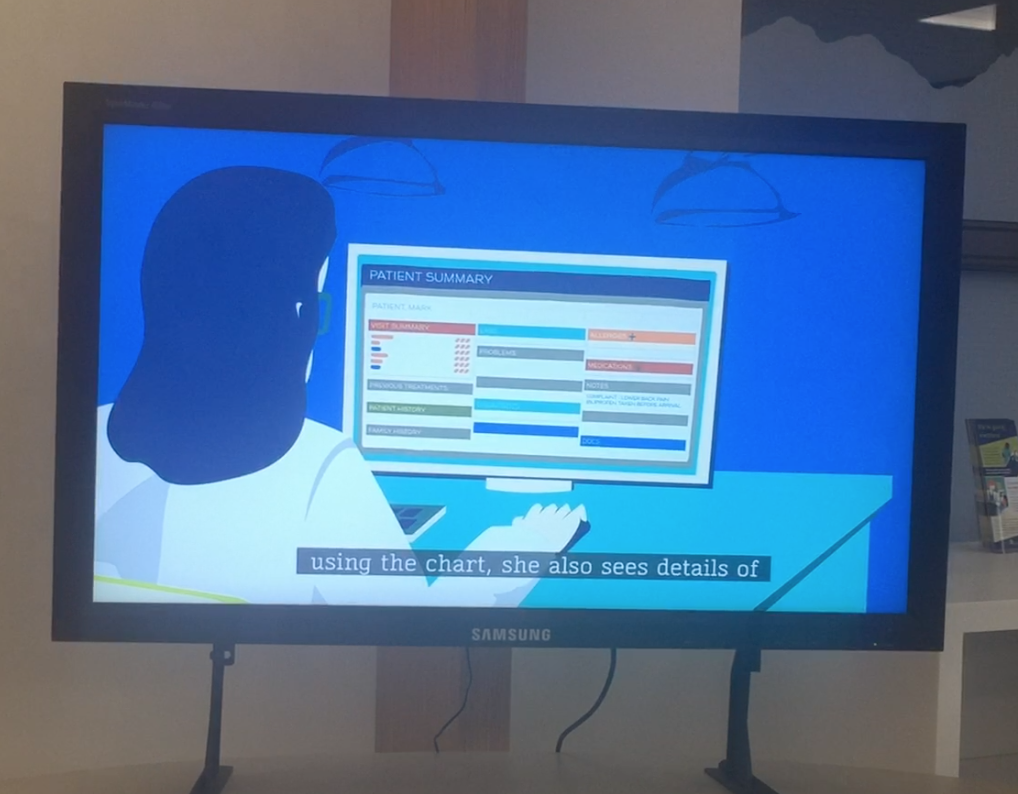
Bob Mackin
When Lions Gate Hospital began the mammoth task to move from paper charts to electronic patient records on April 28, Vancouver Coastal Health asked ambulance drivers to consider taking patients to other hospitals.
A patient at LGH told theBreaker that a paramedic who tended his injury advised him that LGH was changing software systems and suggested delivery to Vancouver General instead. The patient, who did not want his name published, said he refused the advice because Lions Gate is close to his home.
A spokeswoman for VCH told theBreaker that B.C. Emergency Health Services is counselling patients about the situation at LGH, “but it is always a patient’s choice as to which hospital they choose,” said Caeli Turner.

Clinical and Systems Transformation video on a monitor in LGH lobby (Mackin)
“We proactively reached out to the ambulance service and other hospitals in the region to help support us by reducing the number of patients transferred to our hospitals,” said Turner, director of public affairs. “We cannot speak to individual patient cases, but no one is being turned away from our hospitals.”
Turner claimed hospitals supporting LGH during the transition were not experiencing significant impacts and there had been fewer than 15 patient diversions.
When theBreaker visited LGH on April 30 in the early evening, there were staff meetings in part of the main lobby and training sessions in a makeshift classroom. Doctors and nurses were conferring with staff from the project IT department and software contractor Cerner. Signs about the “go live” launch at LGH and Squamish General Hospital were posted throughout the lobby and in elevators.
The transition from paper to digital is officially called Clinical and Systems Transformation, an $842 million collaboration between VCH, Providence Health Care and Provincial Health Services Authority. LGH was supposed to be the first of 40 facilities to go live a year ago.
In March 2017, the BC Liberal government and IBM parted ways over the bungled rollout. Troubles were mounting years earlier. An April 2015 presentation to the VCH board, based on a scathing report by PricewaterhouseCoopers, suggested that weaknesses could be fixed.
“We tried to compare your current state with your future state to assess the degree of change and complexity. Unfortunately, your plans are not sufficiently detailed to allow us to do that,” the PWC report said. “Instead we compared our interview findings with leading practice.”
A similarly ambitious records digitization concept caused upheaval at Nanaimo Regional General Hospital.
Last November, theBreaker reported on the toxic culture that overcame the facility amid the changeover to iHealth. Doctors complained the $174 million system was error-prone and time consuming. An Ernst and Young report on the project found it was $54 million over budget.
A Denver consultant called NRGH rife with bullying, coercion, harassment, intimidation, lack of trust, nepotism and favouritism. “From all indications Nanaimo Regional General Hospital is failing significantly in regard to managing people,” said the Vector Group report.
B.C. Nurses’ Union president Christine Sorensen said the union is pleased with the effort to upgrade the records system, but conceded that the transition would have its ups and downs.
“It was made known to BCNU that some IT glitches were experienced at implementation, but they were reported to an Emergency Command Center and were quickly addressed,” Sorensen said in a prepared statement. “We have also learned that the employer continues to provide multiple types of support at Lions Gate Hospital and Squamish sites around the clock. The new clinical system is not intuitive in nature to learn.”
She said that in eight weeks, 1,100 people were trained before the system went live. The lessons learned from Island Health’s iHealth would help with CST’s rollout.
Support theBreaker.news for as low as $2 a month on Patreon. Find out how. Click here.











